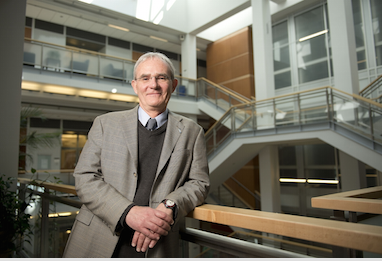PhD
Distinguished Professor, Genetics
Co-Leader, UNC Lineberger Cancer Genetics Research Program
UNC-Chapel Hill
Cancer Genetics
Area of Interest
Using selectable genes as proof of principle, a new high-throughput genotype-based mutation screen in mouse embryonic stem (ES) cells has been developed. A screen of a cryopreserved library of clonal, germ line competent, N-ethyl-N-nitrosurea (ENU) mutagenized ES cells can identify a large series of allelic mutations in non-selectable genes. The accurately assessed mutation load of the ES cell library indicates that it is a valuable resource for developing mouse lines for genetic and functional studies. This methodology is being applied for the generation of an allelic series of subtle mutations in several mouse genes of interest to the Magnuson lab.
X Chromosome Inactivation & Genome Imprinting Regulated by a Mouse Polycomb Group Protein
Using an X-linked GFP transgene, we have shown that the polycomb group (PcG) gene known as Eed is critical for normal X chromosome inactivation (XCI). To extend these results further, Eed null female cell lines have been created to determine when loss of EED results in defective XCI. The use of these mutant cell lines bypasses potential difficulties in the interpretation of data generated with mutant embryos, which harbor considerable amounts of maternal protein even as late as when XCI normally occurs. We also investigated whether Eed is required for proper regulation of autosomal imprinted loci. Expression analyses revealed that transcripts from the silent alleles of a subset of paternally repressed genes were present in Eed mutant embryos. Parent-of-origin methylation remained in Eed mutant embryos. However, changes to the methylation status of specific CpGs within differentially methylated regions (DMRs) were observed at affected but not at unaffected loci. These data identify EED as a member of a class of trans-acting factors regulating parent-of-origin expression at imprinted loci.
The role Swi/Snf Chromatin Remodeling Complexes in mammalian development and disease in addition to chromatin remodeling complexes that covalently modify histones, a second evolutionarily conserved mechanism that modulates chromatin structure is carried out by SWI/SNF and a variety of other ATPase complexes. SWI/SNF does not possess significant DNA binding ability of its own but is recruited to promoters by sequence-specific transcription factors. The energy derived from ATP hydrolysis allows the complex to alter the conformation and position of nucleosomes. DNA-histone contacts are broken, and histone octamers can be slid several hundred base pairs upstream or downstream. As a result, a core promoter can be made nucleosome-free and accessible to the RNA Polymerase II holoenzyme so transcription can be initiated. However, SWI/SNF can be recruited to other loci by transcriptional repressors and have the opposite effect by inhibiting transcription. SWI/SNF complexes have been shown to work in concert with HAT complexes. The lab is using various genetic tools to understand the biological significance of these complexes in development and human disease susceptibility.
Awards and Honors
- Vice Chancellor for Research at UNC-Chapel Hill, 2016-2022
- National Research Council Panel on establishing guidelines for use of human embryonic stem cells, 2004
- Elected member of the Genetics Society of America Board of Directors, 2004-2007
- Member of organizing committee, Cold Spring Harbor/Heidelberg Mouse Molecular Genetics meetings, 2000-2006
- Elected member of the Society for Developmental Biology Board of Directors, 1999-2001
- Co-Editor-in-Chief: genesis: The Journal of Genetics and Development, 1999
- NIH MERIT award, 1999
- Elected member of the Secretariat of the International Mammalian Genome Society, 1997-1998
- Outstanding Faculty Advisor Editorial Advisory Boards, 1995, 1999
- Program Project site visits/RFA panels/Ad Hoc panel member (36), Ad Hoc Counsel Member, NICHD, Mouse Chromosome 7 Committee, 1990-1995 (Chair, 1993-1995)
- Pew Scholar in the Biomedical Sciences, 1985-1989
- Basil O’Connor Award, March of Dimes, 1984-1986
- New Investigator Award (NICHD), 1982-1985
- National Research Service Award (NICHD), 1979-1982
- Postdoctoral Fellow, National Science Foundation, 1978-1979

